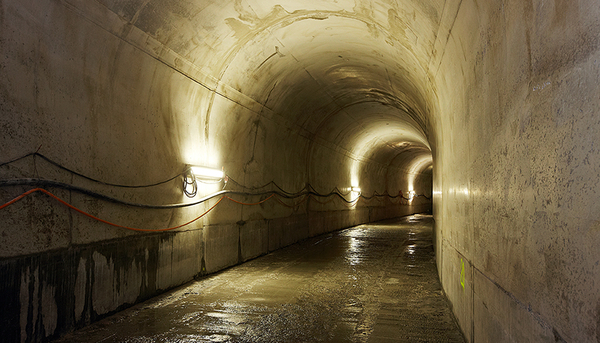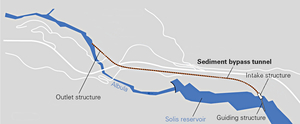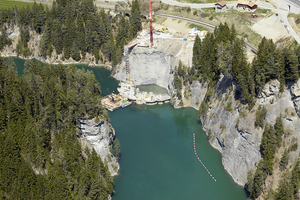News Detail
Ecological benefits of sediment bypass tunnels
May 18, 2017 |
Bypass tunnels designed to reduce sediment deposition in reservoirs also have beneficial effects on ecological conditions in downstream receiving waters. This was the conclusion of a study carried out on the Solis reservoir in Graubünden by biologists from Eawag and the Zurich University of Applied Sciences (ZHAW). Sediment bypass tunnels (SBTs), which are operated during flood events, convey sediment-laden waters around a reservoir into downstream reaches. Switzerland currently has twelve SBTs, and others are planned. According to the researchers, SBTs enable more natural flow and sediment regimes than would otherwise be possible in dam-regulated rivers. Disturbances associated with periodic high-flow pulses are essential for the functioning of river ecosystems, as they drive biotic and abiotic interactions and play a key role in aquatic organisms’ life histories. While SBTs can facilitate the balancing of technical and ecological demands, the authors stress the need to define appropriate maximum discharge levels so as to prevent permanent adverse impacts on river ecosystems.
Before the bypass tunnel was built, around 80,000 cubic metres of sediments from the Albula river were deposited per year, so that the Solis reservoir lost about half of its original storage capacity. Graphic and photo: ewz‑Medienarchiv, Matthias Kunfermann
Original publication
Martín E. et al. (2017): Ecological Assessment of a Sediment By-pass Tunnel on a Receiving Stream in Switzerland. River Research and Applications online
http://dx.doi.org/10.1002/rra.3145



